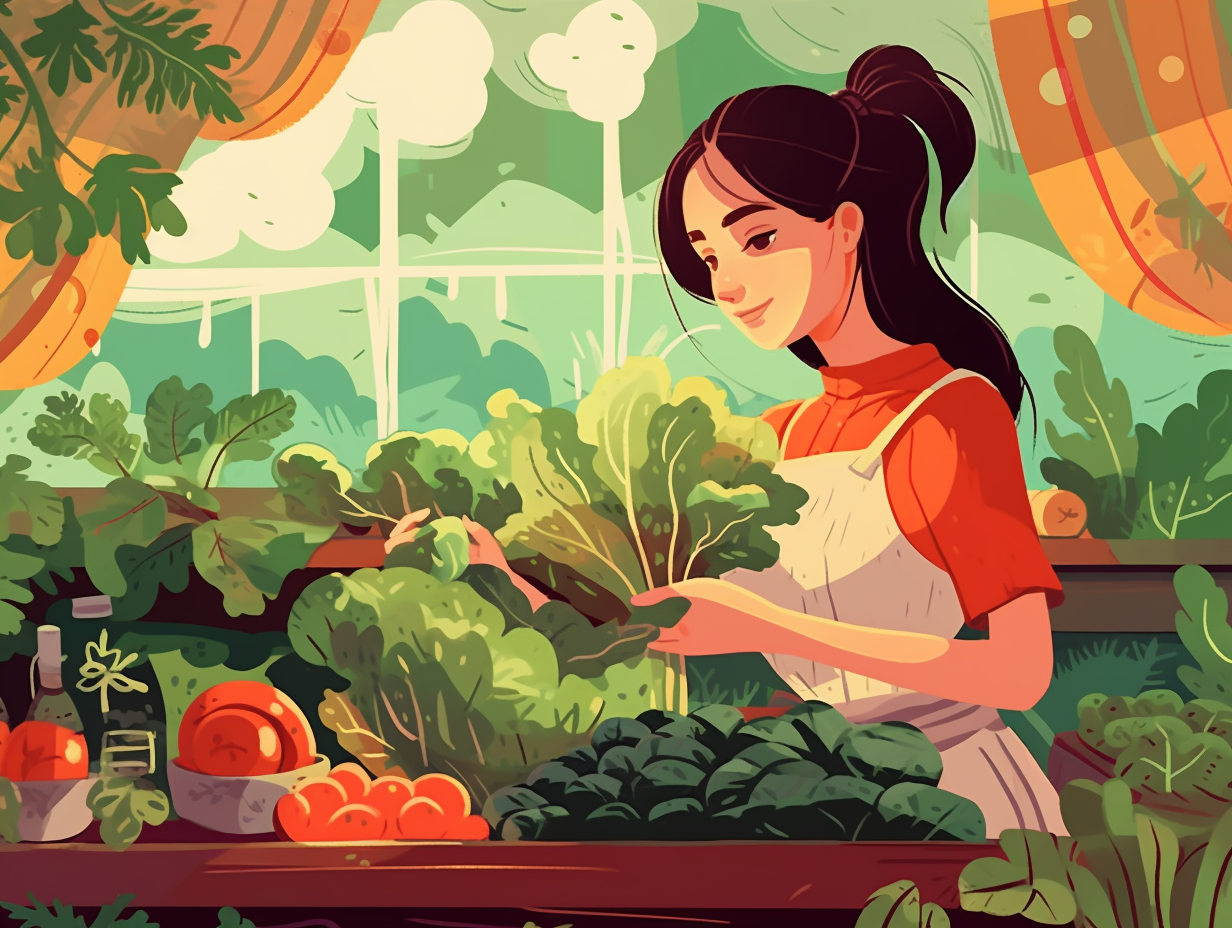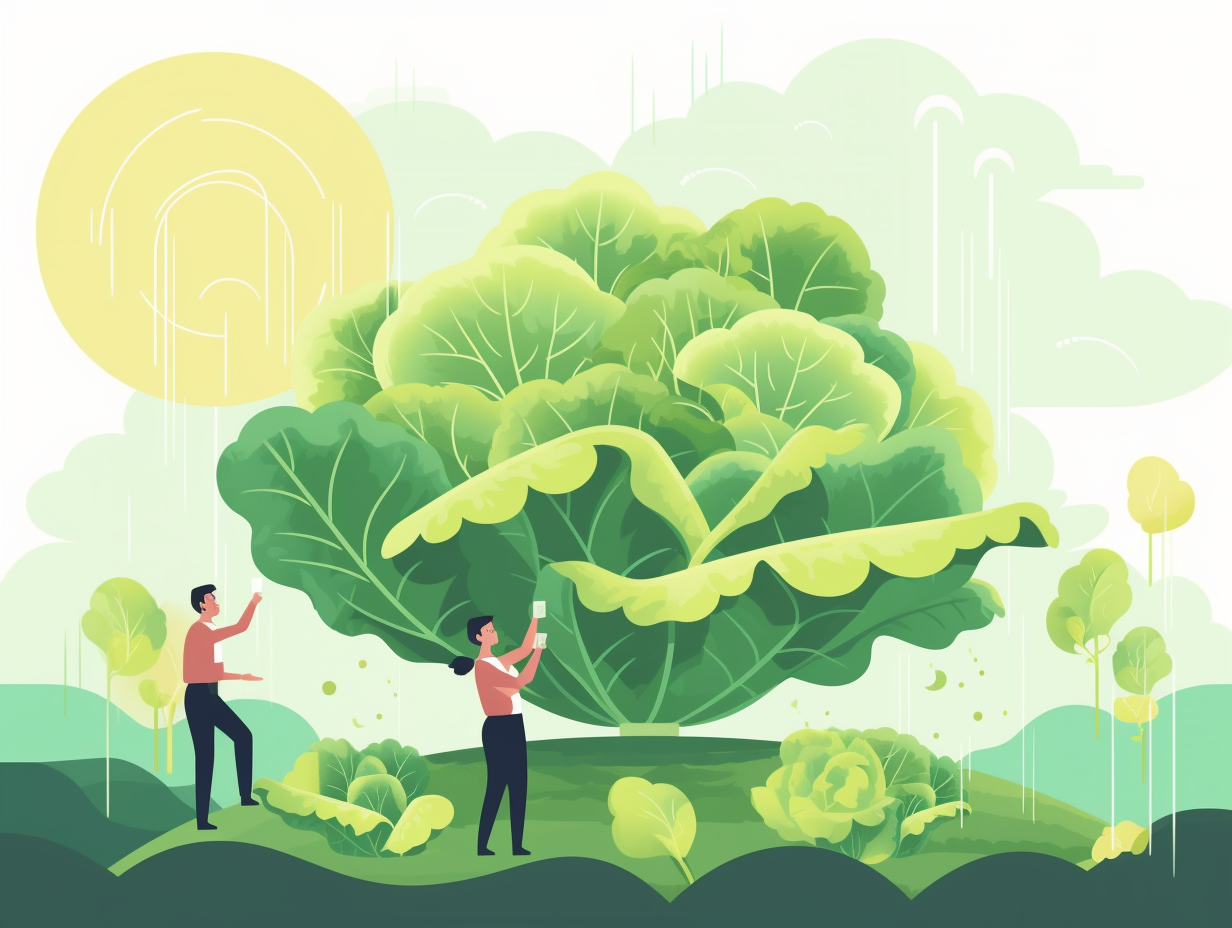Discover the Top 12 Amazing Fun Facts About Organic Food You Never Knew!

1. Organic Avengers Assemble
Picture this: a meeting of the Organic Food Avengers, each one representing a different certifying organization, trying to figure out whose organic label is the most "super." Madness, right? Well, that's basically what happened with over 40 private organizations and state agencies in the U.S. all trying to put their stamp on organic food: Until the Organic Foods Production Act swooped in like Nick Fury in 1990 to establish a unified definition of "organic" and set national standards for marketing agriculturally organic products.
Source => epa.gov
2. Compost: Earth's Fashion Statement
Mother Nature's secret recipe for a balanced diet: Dress your soil with some classy compost, and watch your plants enjoy slow-releasing nutrients that prevent the earth from swinging between the extremes of pH-obsessed fad diets. As a bonus, you'll have earthworms and other soil supermodels endorsing this organic fashion statement! The serious reveal: Compost not only provides consistent nutrition to your plants, it also maintains soil pH levels and supports the growth of beneficial organisms, making chemical fertilizers a thing of the passé.
Source => growingorganic.com

Did you know that blueberries aren't truly blue? Discover the surprising secret behind their deceptive color and the astonishing truth about nature's elusive blue bounty! 🫐🔍🤯
=> Fun Facts about Fruits
3. GMO: The Forbidden Organic Party Guest
When organic farmers say "no GMOs allowed," they mean business – just like an exclusive party guest list, these crops aren't letting any genetic crashers sneak in on their scene: Organic certification guarantees that certified organic foods are non-GMO, and producers undergo meticulous testing to ensure genetic engineering stays far away. Any organic party-pooper caught with GMOs might face some not-so-groovy penalties, including losing their organic certification and coughing up some serious green for fines under USDA's watchful eye.
Source => ota.com
4. Price Tag Showdown: Organic vs. Non-Organic
Hold on to your shopping carts and prepare for dietary enlightenment: organic food is only about 21% more expensive than its pesky nonorganic competitors and a mere 10% more expensive if you give meat the cold shoulder! While bread and snacks and dairy and eggs play nice, it’s the organic meat flexing its muscles and costing up to twice as much as its nonorganic counterparts.
Source => cnet.com

5. Mother Earth's Speed Dating: Crop Rotation
Who knew Mother Earth was into speed dating? She's got her crops on a whirlwind rotation and it's blooming fantastic for love in the wild: Organic farming practices increase soil health and biodiversity, attracting a diverse cast of pollinating heartthrobs like bees and butterflies, who can't resist the all-natural vibes.
Source => mayoclinic.org
6. The Pesticide Weight Gain Games
Welcome to the Pesticide Weight Gain Games, where we compete to see which chemical packs the most pounds! Cut the suspense, here's the tea: A study in Thailand discovered a significant link between long-term pesticide exposure (herbicides, fungicides, insecticides, rodenticides, and molluscicides) and higher rates of obesity among farmers, with 22 out of 35 surveyed individual pesticides contributing to plumper waistlines.
Source => ncbi.nlm.nih.gov
7. Organic Food: Farm to Table Superstars
Farm to table, without the chemicals: Organic food has been thriving in the United States since the 1940s, with over 40 private organizations and state agencies now certifying that the grub is free of synthetic fertilizers and pesticides. The USDA's National Organic Program and National List of Allowed and Prohibited Substances keep it strictly official.
Source => epa.gov
8. Organic Farming: Earth's Trusty Sidekick
In a turn of events fit for an environmental superhero movie, organic farming swoops in as Mother Nature's trusty sidekick, wielding its powers for planetary good: By ditching synthetic nitrogen fertilizers and opting for natural inputs, organic agriculture not only slashes greenhouse gas emissions, but also enhances soil health and carbon sequestration, arming Earth against extreme weather assailants.
Source => nrdc.org
9. Organic Foods: Secret Grocery Aisle Takeover
While organic foods have been sprouting faster than you can say "kale smoothie", these wellness warriors seem to have silently taken over the grocery aisles without anyone noticing: In 2017, the organic food market in the United States saw a growth of 6.4%, accounting for a record $45.2 billion in sales, which made up 5.5% of the food sold in retail channels. Not only did the fruit and vegetable sectors see sales grow by 5.3% to reach $16.5 billion, but organic non-food products also jumped by 7.4%, reaching $4.2 billion.
Source => foodbusinessnews.net

10. Organic Farming: Nature's Resourceful Protectors
From bees being the best wingmen in the farming game, to saving soil and water like Mother Nature's personal bodyguards: organic farming practices not only help maintain biodiversity, but also aid in conserving natural resources, decreasing the dependence on fertility inputs, and upkeeping water quality in our environment.
Source => usda.gov
11. USDA Organic Seal: The Green Carpet of Food
If the produce aisle had a green carpet event, organic foods would strut their wholesome existence like Oscar-worthy celebs, flaunting their USDA Organic Seal like a couture gown: To wear this exclusive label, they must adhere to meticulous standards, from soil quality and farming methods, sans synthetic fertilizers and genetic engineering, to raising animals au naturel, minus antibiotics or hormones, and then sail through an orthodox organic certification process. In the farm-to-table world, that USDA Organic Seal is the fanciest garb, indeed!
Source => usda.gov
12. Organic Apples and Potatoes: Wholesome Celebs
When life gives you apples, make them organic: Studies carried out by The Organic Center suggest that organic apples are firmer in texture, store better, and organic potatoes have higher levels of vitamin C than their conventionally-grown counterparts. Even though taste is subjective, some studies also show links between lower yields and higher antioxidant levels in organic produce, thanks to their less nitrogen-rich, carefree upbringings.
Source => organicag.org
Related Fun Facts




















